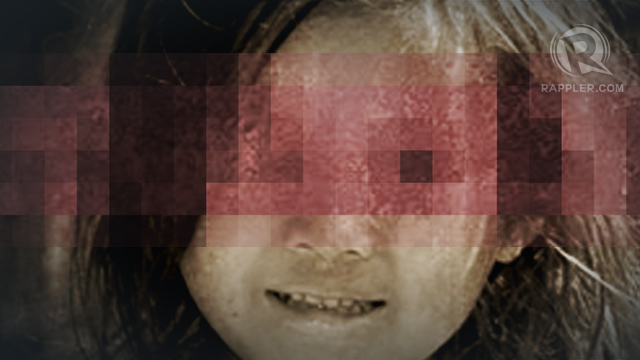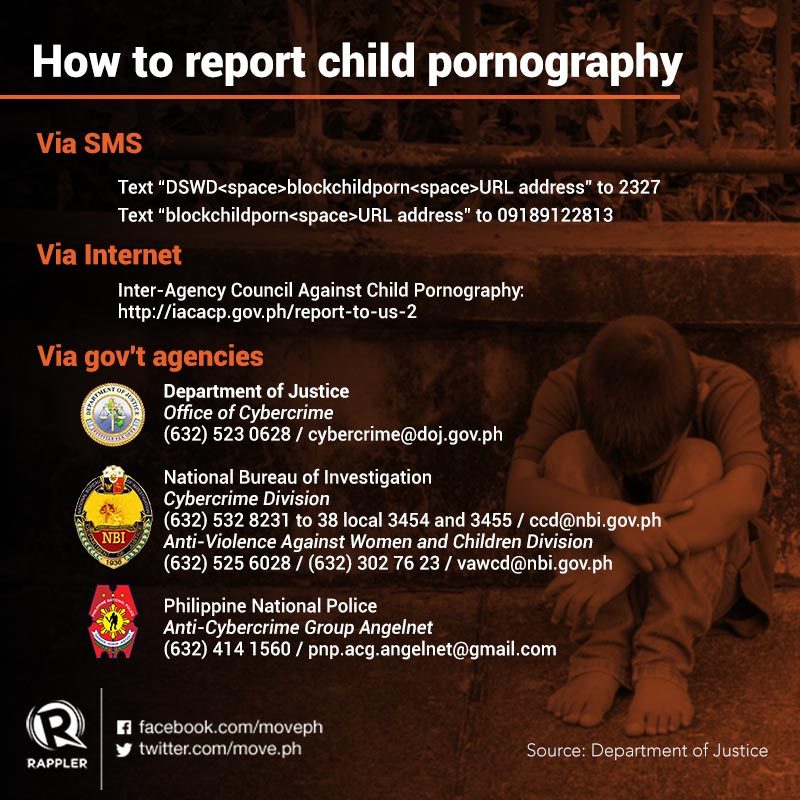SUMMARY
This is AI generated summarization, which may have errors. For context, always refer to the full article.

MANILA, Philippines – Penalties await Philippine Internet Service Providers (ISPs) which fail to install technology to block child pornography, the justice department said.
In an advisory released Tuesday, September 1, the Department of Justice (DOJ) said such a government regulation has been mandated by law but unenforced since 2009.
Child pornography is punishable under Republic Act (RA) 9775 or the Anti-Child Pornography Act of 2009, which requires ISPs to filter sites featuring child pornography.
Under RA 9775, ISPs that fail to do this will be fined P500,000 to P1 million on the first offense and P1 million to P2 million with revocation of license to operate for subsequent offenses.
Moves to block child pornography started to become more concrete in 2014.
With the Philippines considered as a global source of child pornography, DOJ pushed for denying access to pornographic sites featuring children on most computers, smartphones, and tablets.
A National Telecommunications Commission circular already requires ISPs to submit its software solution for evaluation by the Inter-Agency Council Against Child Pornography (IACACP) and report monthly the sites they have blocked.
The list of pornographic websites was also provided by the IACACP.
Duties of ISPs
Under Section 9 of RA 9775, ISPs need to notify law enforcement authorities within 7 days of any form of child pornography in its server.
They are required to preserve the evidence for investigation. The Philippines’ cybercrime prevention law provides a mandatory 6-month online data retention by ISPs.
Anyone with first-hand information on any form of child pornography, including photo developers, information technology professionals, credit card companies and banks, have to report the activity to authorities.

Likewise, under the law, establishment owners whose buildings house publicly displayed child pornography of any form are considered to have “conclusive presumption of knowledge of commission” of the crime.
Stem new markets
Blocking the child pornography sites stems new markets from emerging by dispersing the operations and making it more costly for operators to run the sites.
Former National Bureau of Investigation (NBI) Anti-Human Trafficking Division chief Dante Bonaan said an automated filtering technology against child pornography is needed due to the sheer volume of the sites. (READ: Will banning child porn sites make syndicates harder to trace?)
He noted how the child cybersex industry is a billion-dollar trade with paying subscribers worldwide, which makes syndicates capable of engaging in a technological race with government.
The NBI earlier found that cash-for-cybersex operations involving minors in the country have proliferated in impoverished areas. (READ: NBI: Online sex trade cottage industry in PH)
The target market of children’s nude photos or, in some cases, actual live videos are mostly foreign Internet users.
Family members of the exploited minors are often involved, making it harder for the victims to speak up about the abuse. – Rappler.com
Add a comment
How does this make you feel?
There are no comments yet. Add your comment to start the conversation.